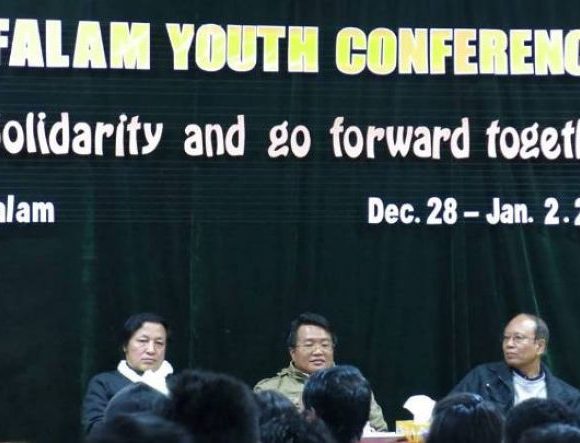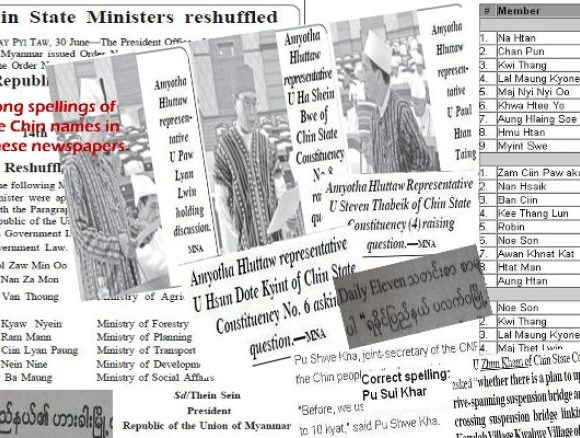A Burmese Perspective: What Happens in China?
17 October 201: As China is turning the Pacific Ocean into the Chinese lake, Beijing is lashing out at the West over human rights, the environment, and the valuation of its currency, leading many to argue that China’s rise is finally beginning to have the destabilizing impact so long predicted by some leading international relations scholars and pundits. But many observers are missing another important driver of Beijing’s recent assertiveness: China’s foreign policy is not in the hands of its diplomats.
Officially, China’s highest-ranking foreign-policymaker is Dai Bingguo, who ranks only 50 in the whole political system. The real power is in the Politburo of the Communist Party — and, to be precise, in its nine-member-strong standing committee. It is here that the directions to get tough on Japan over the South China Sea, or the United States over renminbi revaluation, are made. And Friday marks the start of the annual four-day Politburo meeting, which begins with an unusual cloud hanging over proceedings.
This Chinese “elite of elites” is somewhat distracted at the moment. In about two years’ time, seven of the current nine will have reached retirement age and will need to step aside. Every five years, during the party congress, the next generation of leaders is elevated, and 2012 is going to be a big year: We will see a shift from the “fourth generation” of Chinese leaders under President Hu Jintao and Premier Wen Jiabao to a “fifth.” A new era will start. And in theory, Hu and Wen will sink into quiet retirement, minding their own business and letting the younger guys (and perhaps this time one woman) get on with running the show.
Only this time there are a couple of problems. The first is that there is no powerful elder patron who can direct this whole process smoothly. Deng Xiaoping, the paramount leader of his day, anointed Hu many years before he finally got to the top. It ensured that his road was relatively clear. Deng’s immense prestige and reputation meant anyone arguing with Hu had to reckon with the influence and legacy of Deng.
While Hu’s predecessor, Jiang Zemin, still exercises influence, even in his mid-80s, he has nothing like the clout of a Deng. So the transition this time will be without a patriarch’s guiding hand. That means that while politburos before have had high turnovers, the impact of a large number retiring this time could be far more destabilizing.
No one knows what kind of battles might be taking place now in the central government compound in Beijing where the key leaders live and work. The politburos under Hu and Wen have been watertight. Nothing much gets out about who supports whom, and who is in favor, who in danger. Rumors have swirled around Wen for some time about his lack of support in the party and his occasionally falling foul of Hu. He appeared in the southern city of Shenzhen in late August talking up political reform, leading to speculation that he was trying to create at least some legacy on the more liberal side of the party. But before anyone could get too excited, Wen produced the strongest condemnation of the Japanese when they detained the captain of a stray Chinese ship near disputed sea territory in September. Was he opportunistically compensating for being accused of being too soft earlier in the year? We simply don’t know. Wen’s recent interview with Fareed Zakaria — censored by state media — only adds to the uncertainty. Unlike with Western rulers, however, the habit of producing lengthy autobiographies after politicians leave office has yet to catch on in China, so we will probably never find out for sure what exactly has been going on.
As in other political cultures, foreign policy is an easy way for Chinese leaders to outmaneuver their opponents. The Communist Party is certainly nobody’s idea of a democratic institution, but it has plenty of divisions — and not just between left and right, liberal and conservative, traditional and modernist. It has different kinds of elites and business interests, and different leadership dynamics depending on whether one is looking at the party in the capital or the provinces. The Communist Party’s dominant figures in a central region like Hunan, for instance, exercise just as much power over their local area as diktats from Beijing.
At the best of times, forging consensus in a 78 million-strong entity, with so many different levels and interests to satisfy, is hard. But when a major change at the top looms, things get even more precarious, especially in view of the fact that this process has never been tried in this way before. Exactly how the current front-runners to replace Hu and Wen in 2012, Xi Jinping and Li Keqiang, are supposed to demonstrate their legitimacy, both publicly and within the party, is unclear. Analysts and observers are already attempting to search out hints about who might be in which position. But the fact that with only two years to go, so few of the other seven Politburo slots have clear front-runner candidates is a bit worrying. The longer this goes on, the more troubling it gets. The idea that figures will simply walk out from behind the red curtain in the autumn of 2012, with no preparation, and go straight into a Politburo job is absurd.
That means that, in a closed, one-party system, we are in fact entering the oddest kind of election period. With a hundred little gestures and signs, particular candidates, from Chongqing party boss Bo Xilai, to current Vice Premier Wang Qishan, to Guangdong boss Wang Yang, to head of the powerful personnel department Li Yuanchao, are having to stake out their territory. Showing a slightly harder face to “foreign aggression and interference” might be a good “election platform” on which to stand — never mind that external observers might be wholly clueless as to where this sudden angry assertiveness came from and what is driving it.
Of all the many things we don’t know about who the next leaders of China might be, there are a few things we can be certain about. Whoever the leaders are, they will not be technocrats the way the previous generation was. There will be political scientists, economists, and lawyers running China into the future now — very much like in the West. The era of the engineers and geologists is coming to an end.
China’s new leaders will have no immediately obvious link to the military. None of the likely candidates for leadership after 2012 has ever served in the army, or ever directed it. But most ominous of all, because of their age (mid-50s onward) they will all be people who were brought up and educated during the 1966-1976 Cultural Revolution, the most closed, xenophobic era in post-1949 Chinese history. None will have studied abroad for any length of time, and they will all have limited international experience.
A far more auspicious sign is that their key advisors and those they will be grooming, in five to 10 years after 2012, to take over China will be from the generation from which huge numbers studied in the West. They will be some of the most-sophisticated, best-educated leadership elite of any country in the world.
Until 2012, however, expect some uncomfortable moments, and some surprises. The Communist Party cannot allow its leadership transition to become a no-holds-barred battle for power. But in view of the stakes, it shouldn’t shock us to see individuals and the groups they are associated with start clashing with each other. We just have to hope the system as it exists can take this tension and deliver an outcome in autumn 2012 that is acceptable, sustainable, and, most important of all in view of the vast internal challenges facing China in the coming years, workable where does Burma stand?





